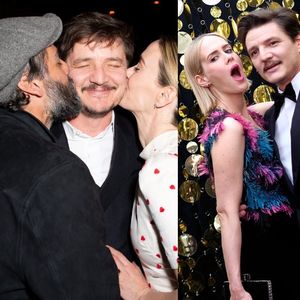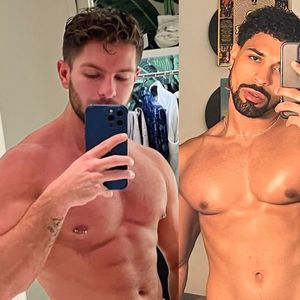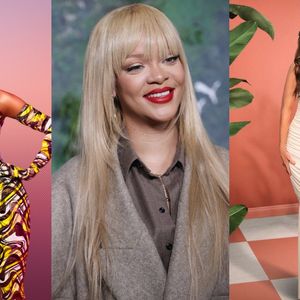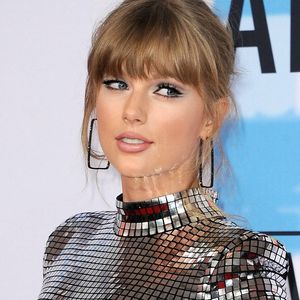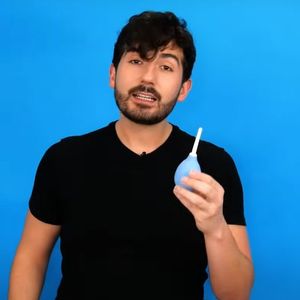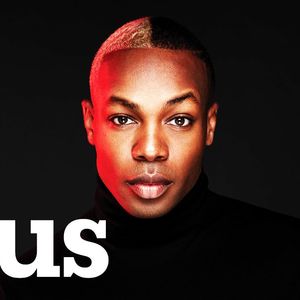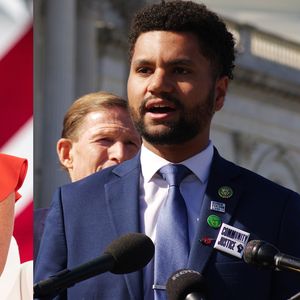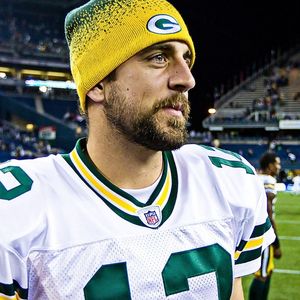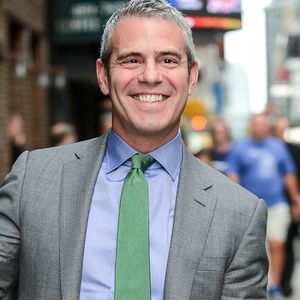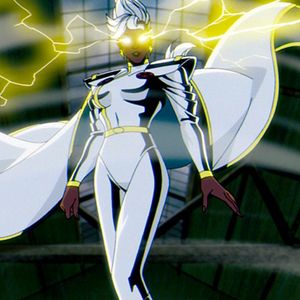
CONTACTStaffCAREER OPPORTUNITIESADVERTISE WITH USPRIVACY POLICYPRIVACY PREFERENCESTERMS OF USELEGAL NOTICE
© 2024 Pride Publishing Inc.
All Rights reserved
All Rights reserved
By continuing to use our site, you agree to our Private Policy and Terms of Use.
I am not the first to convey that growing up gay is a less than easy path. No matter how supportive your family, community, or friends might be, most gay adults can relate to the impact of being bullied, teased, and taunted. Oddly, part of me argues that this is an important part of the adolescent experience -- learning to deal, adjust, and hold one's own in a world that is not always so kind.
But a larger part of me is reminded of the long-lasting impact that same treatment can have on one's confidence and feelings of self-worth. And even as an adult I find myself affected. Affected by recent e-mails in response to this very column, a place where I, without caution, speak my truth in hope of adding context to someone else's. E-mails, much like those bullies from years past, with ignorant words empowered by popular opinion and seeking to discredit my truth.
Initiatives like "It Gets Better" and the work of groups like the Anti-Violence Project in New York City seek to counteract these acts. But the lingering effects still persist -- to say I haven't been upset would be a lie. The reality is, at 29 years old, I have wondered, Just how much better does it really get?
I am not famous, nor exceedingly rich, and certainly have not made all the right decisions. And so, as someone who believes wholeheartedly in the power of conversation, perhaps parts of my story, void of a celebrity ending and absent of any noteworthy awards, will reiterate that there is light at the end of that seemingly endless tunnel.
It started early for me -- first grade to be exact. Miss Peterson's class at Knight Elementary just outside of Atlanta. I remember a classmate -- his name was Justin -- calling me a girl. I was so confused. I knew I wasn't a girl. I knew all about the things that made me a boy. But I also knew that I wasn't like Justin. In fact, I kind of liked Justin, the same way he probably liked Lauren.
But finding a way to express that truth in first grade was impossible. That feeling of angst and inability to communicate who I was would last for years. Fourteen more years, in fact, before I found the words to express who I was.
In third grade I came home from school and told my mom that I hated my voice. She asked why, and through the tears I said because it sounded too much like a girl's. It had become painfully clear when we had to record our voice for a book reading that day in class. This was something kids like Justin found so funny. The haunting laughter from classmates lingers in my mind today.
It bothered me so much that I went to see a counselor to work on
my speech in the hopes of alleviating that "girlish sound" and forcing a
deeper Southern drawl. The persistent teasing drove me crazy. I had
friends, but I didn't always feel comfortable. In fifth grade I was
pushed down a muddy hill in my brand new white Dockers pants, with a
matching white polo shirt, I might add. If that happened today, I
would likely have a spare outfit on hand, but at 10, I was devastated.
I simply couldn't imagine it would ever get
better.
In middle school I didn't ride the bus because of a
kid named Bruce. Bruce found my affinity for nice clothes reason enough
to assume I was gay. Little did Bruce know there were more reasons than my
clothes. In sixth grade, just having entered a new school district at
Lawerenceville Middle, also outside of Atlanta, I would often come home upset,
just as I had in elementary school, embarrassed to even explain to
my mother why. After all -- they had told me that when I went through
puberty my voice would change and become more "normal." Imagine my
disappointment when my normal was not what they expected.
So by the third
week of this new start, in a new school, my reputation was
established. I was just as they had described -- "girly," "gay," or a
"sissy." It was, oddly, the "sissy" that realy got to me.
I tried to like girls -- that was the "normal" thing to do. I would
force myself to take girls to the prom and homecoming, awkwardly dancing
and dreading the night ahead. The truth is, I never liked girls in the
way other boys did. In fact, the thought of it kind of nauseates me.
I liked boys and I still do. I got that funny feeling
in my stomach that you get when you find someone attractive as early as
first grade. The feeling I still get today in anticipation of a date, a
kiss or a simple glance from an admirer. But everyone told me that
feeling was wrong; everyone told me that everything I knew about myself
was wrong. To feel wrong but know you are right is a daunting place to
be.
Looking back, this was the source of so much anxiety, unhappiness, and confusion. I worked hard to compensate for this assumed inadequacy. Perfect attendance, straight A's, and winning the Atlanta Journal Cup for outstanding high school achievement, to name a few accomplishments. But my greatest achievement came on Thanksgiving at 19 years old when I told my mother that I was in fact gay. At the time, I thought this would be the hardest thing I ever had to do. My family was supportive; my dad, the former football player and true Southern fraternity boy, discovered an untapped love for his son and an affectionate worry about other gay boys and girls.
Does it
really get better? Certainly, but the true test didn't come until much later
in life. That voice that once drew laughs would soon anchor the 5
o'clock news in Meridian, Miss. That voice today, the one that
brought me to tears, is a signature sound my clients around the world
can't forget. Always recognized, respected, and simply known as Tyler's.
That girly disposition and affinity for nice clothes would serve me well
in the years to follow. And even in the face of my greatest fear, when
I sat in despair recounting my diagnosis with HIV, unable to find a
boyfriend, tired of dealing with it all, hopeless, scared, sad and
tired ... it was that voice that came to my rescue. That voice, the same
one that Justin had made fun of nearly 25 years ago, would rise to the
occasion and share with the world my biggest secret.
The truth is,
we are more similar than not. Our commonalities often overshadowed by
our need to differentiate. But at the core we are all in search of the
things that make us happy. We have the desire to be loved, to be heard, and
to be remembered. And so, at 29 years old, I am openly gay, HIV-positive, not
proud of every decision, not ashamed of every misstep, and grounded in
the truth and reality of my unexpected journey.
I hope one gay boy somewhere might see my journey as living proof of just how much better it really does get and perhaps one bully will see that even the "girly voice" and the one with HIV, more often than not, will end up being loved, heard, and remembered.
It gets better ... so much better.
Want more breaking equality news & trending entertainment stories?
Check out our NEW 24/7 streaming service: the Advocate Channel!
Download the Advocate Channel App for your mobile phone and your favorite streaming device!
From our Sponsors
Most Popular
Here Are Our 2024 Election Predictions. Will They Come True?
November 07 2023 1:46 PM
Meet all 37 of the queer women in this season's WNBA
April 17 2024 11:24 AM
17 Celebs Who Are Out & Proud of Their Trans & Nonbinary Kids
November 30 2023 10:41 AM
Here Are the 15 Most LGBTQ-Friendly Cities in the U.S.
November 01 2023 5:09 PM
Which State Is the Queerest? These Are the States With the Most LGBTQ+ People
December 11 2023 10:00 AM
These 27 Senate Hearing Room Gay Sex Jokes Are Truly Exquisite
December 17 2023 3:33 PM
10 Cheeky and Homoerotic Photos From Bob Mizer's Nude Films
November 18 2023 10:05 PM
42 Flaming Hot Photos From 2024's Australian Firefighters Calendar
November 10 2023 6:08 PM
These Are the 5 States With the Smallest Percentage of LGBTQ+ People
December 13 2023 9:15 AM
Here are the 15 gayest travel destinations in the world: report
March 26 2024 9:23 AM
Watch Now: Advocate Channel
Trending Stories & News
For more news and videos on advocatechannel.com, click here.
Trending Stories & News
For more news and videos on advocatechannel.com, click here.
Latest Stories
Trans man Tee Arnold shot to death in Florida
April 17 2024 4:41 PM
Can scientific research on the causes of homosexuality be used against LGBTQ+ people?
April 17 2024 4:02 PM
George Takei releases kids' book about his childhood in internment camp
April 17 2024 3:18 PM

PLUS
ExclusivesTodrick Hall on surviving the rumors and remembering where he came from
April 17 2024 2:33 PM

Pride
Yahoo FeedHow The Pride Store celebrates National Tea Day: A tale of two brews
April 17 2024 2:14 PM
'Parents' Rights' movements forget families have the right to read LGBTQ+ books
April 17 2024 10:15 AM










































